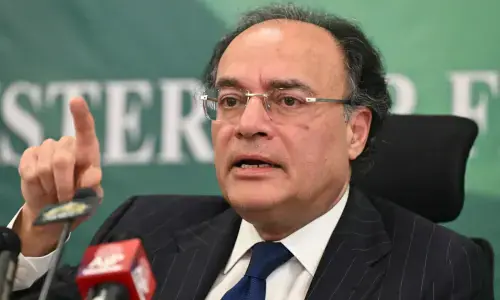IN A MOVE that will leave the US with no mechanism for policing audits of public companies, the US accounting industry’s Public Oversight Board (POB) has voted itself out of existence recently. According to the chairman of the board, the move was meant as a mark of protest against the plans of the US Securities and Exchange Commission (SEC) to set up a body to replace the board. Why these abrupt changes? The answer is simple: the dramatic collapse of Enron.
Enron, once America’s 7th largest corporation, filed for bankruptcy under Chapter 11 on December 2, 2001. Enron had stunned financial markets with the disclosure of a $600 million third-quarter loss in October last year,— one of the largest financial restatements in history. Since Enron restated its profits of the past five years by this amount, markets and investors were increasingly nervous. For Enron’s employees this bankruptcy was a disaster as the bulk of their retirement savings were in Enron shares.
Defined contribution plans are the most common retirement vehicle in the United States. In such plans, employees’ ultimate pensions depend upon the investment performance of the pension plans. Known popularly as 401(k) plans, especially after the bull market of the 1990s, it is not surprising how concentrated investments in stocks are. Many companies have matched employee contributions to 401(k) plans in the form of company shares rather than cash.
Interestingly 58 per cent of Enron’s pension plan was invested in its own stock. According to The Economist (December 15th, 2001), “such blue chip companies as Coca Cola, General Electric and McDonald’s, all have three-quarters or more of their 401(k) plans invested in their own equity. For Proctor & Gamble, normally a paragon of best corporate practice, the proportion is almost 95 per cent”. With such high proportions of investments in own stock, is it prudent investment management on behalf of the plan managers?
The collapse of Enron is turning out to be the accounting industry’s worst scandal. Regulators and legislators in the US have focused attention on Enron’s auditor, Arthur Andersen, and are providing an array of increasingly shocking news about the way the case was handled.
On January 17, Harvey Pitt, Chairman of the SEC, rushed to lay out new rules that would end decades of self-policing by the accounting profession, putting a group of mainly outside experts in charge of oversight instead. It was the first, but probably not the last, word from regulators or the US Congress. The SEC, the US Justice Department and 10 congressional committees are investigating Enron.
Meanwhile, questions are also being asked about Arthur Andersen’s apparent conflicts of interest in the Enron case. In 2000, the firm was paid $27 million by Enron for tax and accounting consulting work, in addition to $25 million for audit work. It was hired not only as Enron’s external auditor, but also as its internal auditor to test the company’s internal compliance systems.
Internal auditing and consulting directly conflict with the role of an outside auditor. An outside auditor is supposed to review a company’s internal financial systems to ensure they are adequate to prevent fraud. It is also supposed to review a company’s accounting decisions to ensure they are proper under the rules. Yet if Enron’s systems were designed on the advice of Arthur Andersen’s consulting staff, it is hard to believe that Arthur Andersen auditors can assess those systems with complete impartiality. The appearance of conflict overwhelms any individual auditor’s attempts to act independently.
Auditors have their own version of the debacle. According to one, “All creative accounting starts with the client, and our job as auditors is to be the last line of defence, to uncover fraud and inconsistencies.”
After the Enron disaster, the SEC should do what its former Chairman Arthur Levitt has long urged: ban accounting firms from doing consulting work for their audit clients. The SEC has recently announced creation of a new body to oversee the US accounting industry, with the power to launch disciplinary hearings. This removes the disciplinary role from the American Institute of Certified Public Accountants (AICPA), an industry association.
Many analysts opine that the SEC should have gone much further. According to them, the accounting industry is quite pleased that change has not been more drastic. Industry representatives will be part of the new regulatory body, and no government agency has been created to take control. While the SEC will oversee the new body, it has not chosen to directly regulate accountants itself.
The American stock markets appear to be suffering from a severe case of Enronitis. After a solid start to this year, the US market has broken down in reaction to the spreading scandal. Other markets have plainly followed suit. The involvement and Enron-connection of some big Wall Street names in the auditing, banking and consulting business is creating ripples and shattering investor confidence in the system.
Ironically perhaps, the Euro’s launch could not have happened at a better time for the European Union. Market analysts will be keeping a watchful eye on portfolio flows to the US and Europe in the light of the Enron debacle and its impact on investor confidence. Since the end of June 2001, the US has seen net outflows worth $2.50 billion. Continental Europe has been the primary destination of these funds. Test first, lesson later.
The Securities and Exchange Commission of Pakistan should take a cue from these events, prepare rules that clearly separate the roles of auditing and consultancy, and enforce regulation to ensure such disasters do not occur in Pakistan.
There are quite a few lessons to be learnt from this corporate failure. Firstly, auditing and consulting work need to be separated. Secondly, accounting rules need to be updated and disclosure requirements for all publicly quoted companies need to be tightened. Lastly, as was the case in the dotcom mania, recommendations of highly paid financial analysts need to be scrutinised. Investors appear to be skeptical of analyst research but still get burnt. There are suspicions of conflicts of interest and investors have to be careful.
As events continue to unfold and more information is obtained, Enron employees, investors and market observes will continue to be shell-shocked. In the end, carping about the failure of Enron or about the wilful negligence and incompetence of auditors is irrelevant. The damage has already been done to the system.































